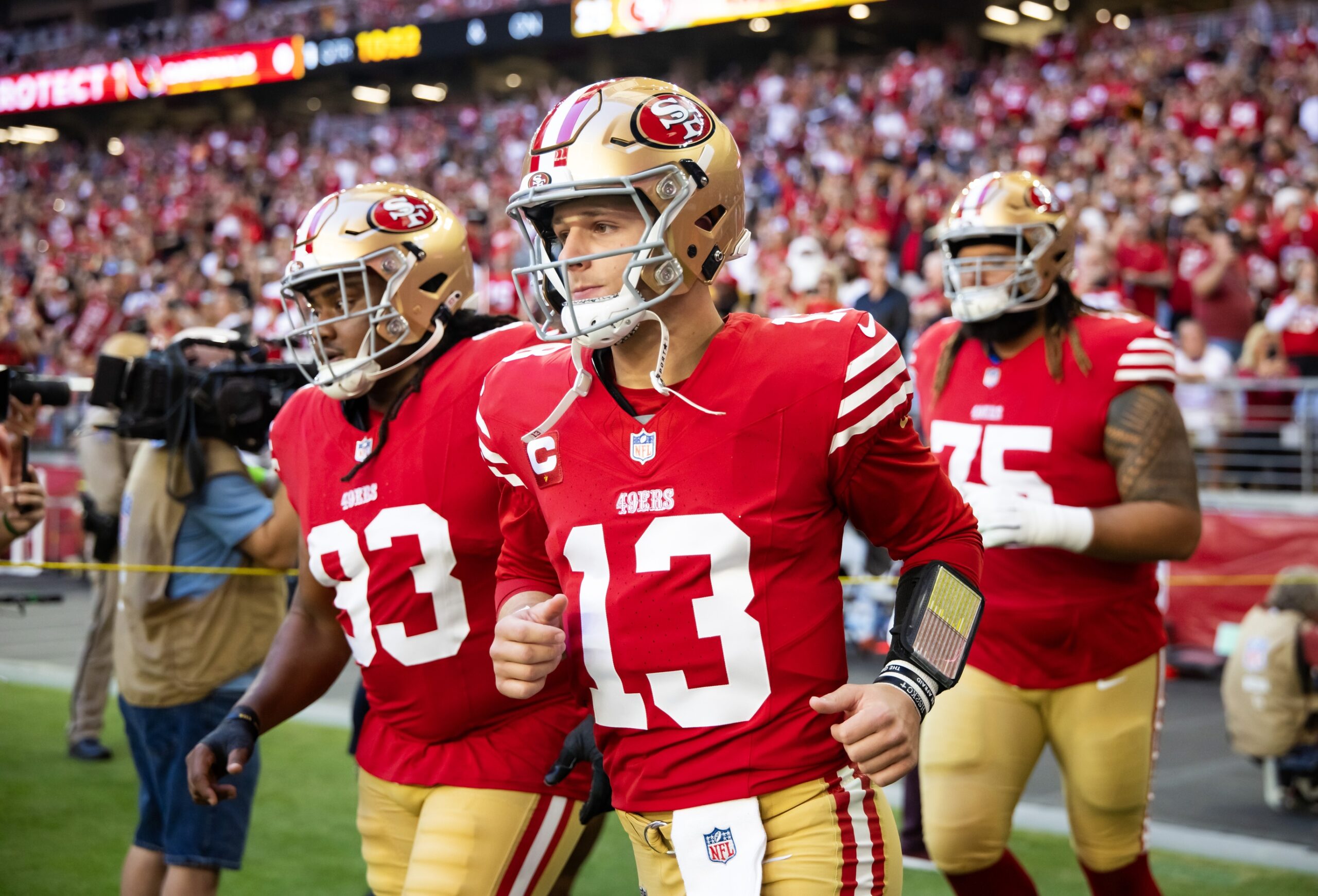
The San Francisco 49ers, a storied franchise in the National Football League (NFL), have a history of bold moves and strategic decisions. However, not all of their maneuvers have panned out as intended. One such instance that stands out in recent memory is their trade involving star defensive lineman DeForest Buckner.
In March 2020, the 49ers shocked many in the football world by trading DeForest Buckner to the Indianapolis Colts in exchange for the Colts’ first-round pick in the 2020 NFL Draft, the 13th overall selection. This move was widely regarded as a cost-cutting measure aimed at freeing up salary cap space to re-sign other key players, most notably All-Pro tight end George Kittle, whose contract extension negotiations were ongoing at the time.

DeForest Buckner was a cornerstone of the 49ers’ defense, known for his disruptive presence on the defensive line and his leadership both on and off the field. Drafted by San Francisco with the 7th overall pick in the 2016 NFL Draft, Buckner quickly established himself as one of the league’s premier interior defensive linemen. His contributions were instrumental in the 49ers’ journey to Super Bowl LIV in the 2019 season, where they narrowly lost to the Kansas City Chiefs.
Trading Buckner was a risky decision, as it meant parting ways with a player who was not only highly productive but also beloved by fans and respected by teammates. His departure left a significant void in the 49ers’ defense, despite their attempts to fill the gap through the draft and free agency.
In return for Buckner, the 49ers received the 13th overall pick in the 2020 NFL Draft, which they used to select defensive tackle Javon Kinlaw from the University of South Carolina. Kinlaw was seen as a promising prospect with tremendous upside, possessing similar physical attributes to Buckner. However, as a rookie, he faced challenges adapting to the NFL level of play and struggled with injuries during his first season.
While it is still early to definitively assess the long-term implications of the trade, initial reactions were mixed among fans and analysts alike. Some questioned the wisdom of trading a proven talent like Buckner for a rookie with potential, especially given the 49ers’ immediate championship aspirations following their Super Bowl appearance.
On the other hand, supporters of the trade pointed to the financial flexibility it provided the team, allowing them to secure key players like George Kittle to long-term contracts. In a league with a strict salary cap, such financial maneuvering is often necessary to sustain success over the long term.
As the 2020 season progressed, it became evident that Buckner’s absence had a noticeable impact on the 49ers’ defense. While Javon Kinlaw showed flashes of his potential, he was still developing as a player and did not yet possess the same level of consistency and impact that Buckner brought to the field.
Meanwhile, DeForest Buckner continued to thrive with the Indianapolis Colts, further solidifying his reputation as one of the NFL’s premier defensive linemen. His presence helped bolster the Colts’ defense and earned him Pro Bowl honors for the 2020 season, showcasing the talent and leadership that the 49ers had relinquished in their trade.
Ultimately, the trade involving DeForest Buckner highlighted the complexities of roster management and strategic decision-making in the NFL. While it provided short-term financial relief and an opportunity to invest in younger talent, it also came at the cost of losing a proven star player who was integral to the team’s recent success. Only time will tell whether the 49ers’ decision to trade DeForest Buckner will be viewed as a regrettable mistake or a calculated risk that paid dividends in the long run.
Leave a Reply